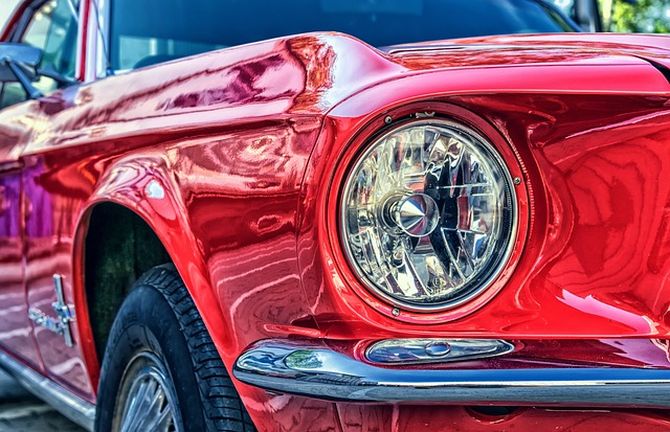The Ultimate Guide: Protecting Your Car from Potential Threats
Your car is a significant investment that provides convenience and mobility, so you must protect your vehicle from potential threats that can compromise its safety, security, and longevity. This ultimate guide will explore various measures and precautions you can take to safeguard your car from a range of threats, ensuring its optimal performance and longevity.

Environmental Protection
Environmental factors can impact your car’s appearance and performance. Protect your vehicle from these threats:
a. Acid Rain and Bird Droppings: Acid rain and bird droppings can corrode your car’s paint. Regularly wash your vehicle to remove these contaminants, and consider covering up your car or applying a protective coating or sealant. A car cover provides additional protection against environmental elements, preventing acid rain and bird droppings from directly coming into contact with your car’s paintwork.
b. Extreme Temperatures: Park your car in shaded areas or use sunshades to minimize exposure to direct sunlight. Let the engine warm up before driving in cold weather, and use winter tires for improved traction.
c. Salt and Road Debris: In areas where roads are treated with salt during winter, regularly wash the undercarriage of your vehicle to remove salt deposits, which can lead to rust. Use mud flaps or splash guards to protect the body from debris and road salt.
Theft Prevention
Car theft is a prevalent concern in many regions. To protect your vehicle from theft, always lock your car, even if you’re just stepping away for a few minutes. All windows should be closed and the sunroof needs to be secure. When parking, choose well-lit areas, preferably with security cameras or in view of high foot traffic. If possible, use secured parking facilities. Also, consider investing in a car alarm system or a GPS tracking device. These can deter thieves and help recover your vehicle in case of theft. Finally, steering wheel locks and immobilizers provide an additional layer of security by making it difficult for thieves to operate your vehicle.
Security Measures
Enhance the security of your car by using visible deterrents. Displaying security decals or window stickers can deter potential thieves. Avoid leaving valuables inside your vehicle in plain sight. Store them in the trunk or take them with you. Park your car in a closed garage if possible, or a well-lit area. And be mindful of remote keyless entry systems. These systems can be vulnerable to hacking. Keep your key fob in a signal-blocking pouch or a metal container when not in use to minimize the risk.
Regular Maintenance
Proper maintenance is vital for the longevity of your car. Follow these maintenance tips:
a. Adhere to the Manufacturer’s Maintenance Schedule: Refer to your car’s owner manual for the recommended maintenance schedule. Regularly service your vehicle by changing the oil, filters, and spark plugs and inspecting the brakes, tires, and battery.
b. Check Fluid Levels: Regularly check and top up essential fluids such as engine oil, coolant, brake fluid, and transmission fluid.
c. Inspect Tires: Monitor tire pressure and tread depth regularly. Maintaining proper tire pressure and replacing worn-out tires can improve fuel efficiency, handling, and safety.
d. Keep the Exterior Clean and Protected: Regularly wash your car to remove dirt, debris, and corrosive substances that can damage the paint. Apply wax or paint sealant to protect the exterior from UV rays, oxidation, and environmental elements.
Insurance Coverage
Having comprehensive car insurance is an essential aspect of protecting your car. It provides financial coverage for theft, accidents, or damage caused by natural disasters. Consider the following insurance-related tips:
a. Evaluate Insurance Options: Research and compare different insurance providers to find a policy that suits your needs. Look for theft protection, comprehensive coverage, and liability insurance.
b. Understand Policy Terms: Read your insurance policy carefully to understand what is covered and excluded. Be aware of deductibles, coverage limits, and any additional features or riders you may need.
c. Maintain Accurate Records: Keep records of your insurance policy, including contact information, policy number, and claims procedures. It’s also essential to document your car’s condition, maintenance records, and any modifications made.
d. Report Incidents Promptly: In case of theft, accidents, or damages, report the incidents to your insurance provider as soon as possible. Provide all necessary documentation, such as police reports and photographs, to support your claim.

By implementing these comprehensive measures, you can significantly enhance the protection of your car from potential threats. Remember, prevention and proactive measures are vital to keeping your vehicle safe and maintaining its value. Stay vigilant, invest in security measures, and prioritize regular maintenance to ensure a safe and enjoyable experience with your car for years to come.
